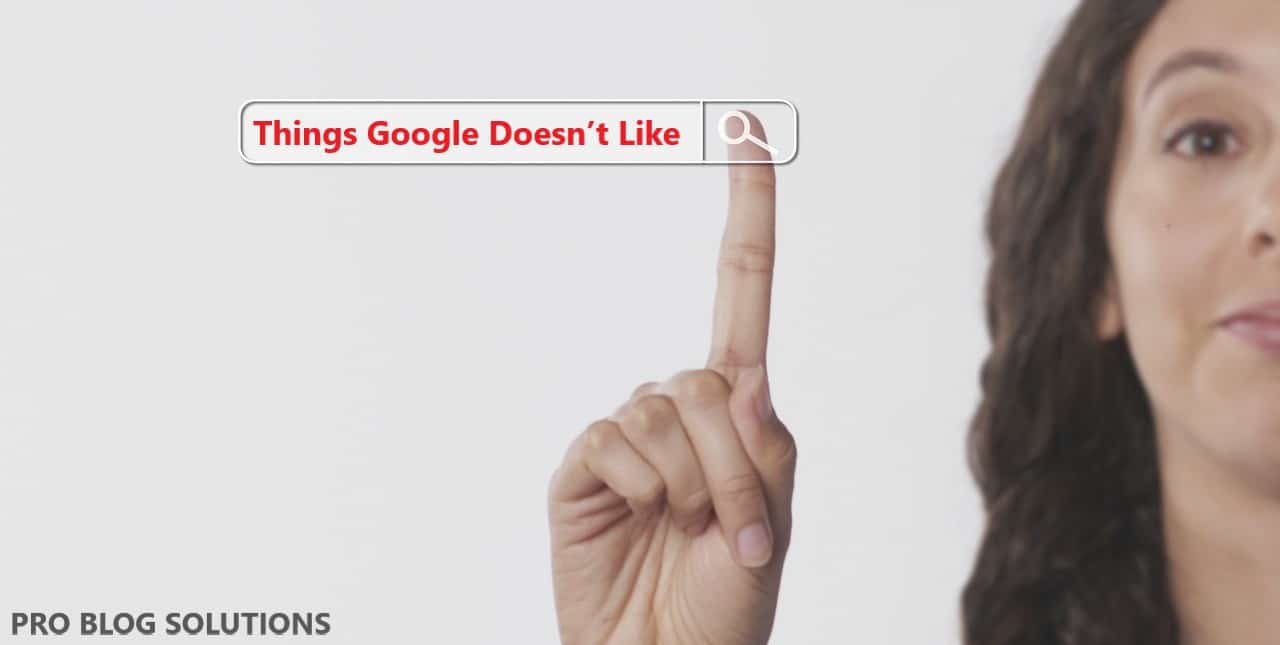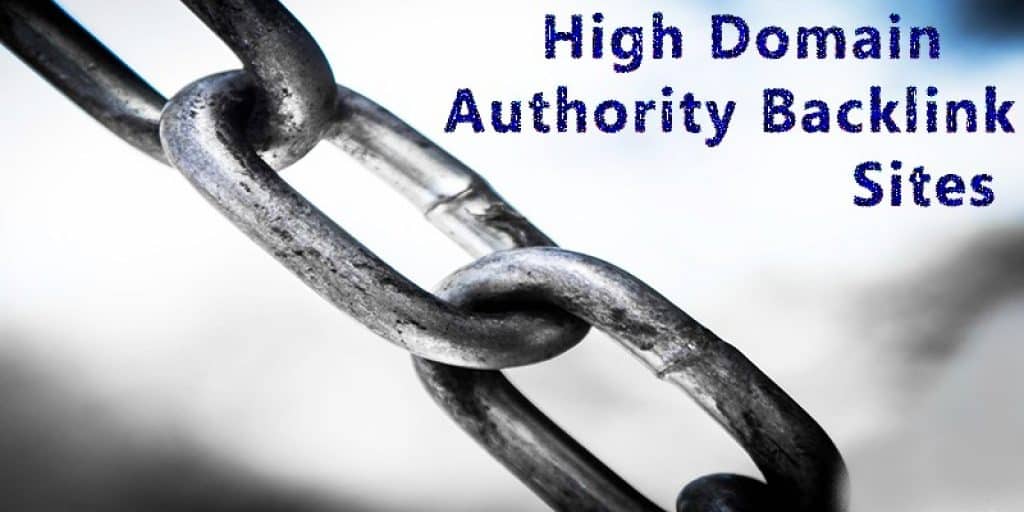Before we start today's topic about “things Google doesn't like and how to avoid them as a blogger,” let's first understand why we need to care about Google.
The constant evolution of Google’s algorithms requires continuous optimization of web pages, a job that shouldn’t stop at choosing the right keywords.
Google constantly changes its search algorithm, and keeping up with the latest updates can be challenging. However, you can do a few things mentioned below to ensure as high as possible:
Prioritize user experience: Make sure your website is mobile-friendly, loads quickly, and easy to navigate. People are likelier to stay on a site that offers a good user experience.
Focus on high-quality content: Google prioritizes informative, well-written, and valuable content to users. Write content that addresses the searcher's intent and answers their query satisfactorily.
Optimize for relevant keywords: Understanding what keywords people are searching for can help you tailor your content to their needs. However, avoid keyword stuffing – focus on creating natural content incorporating relevant keywords.
Build backlinks: Backlinks are linked from other websites to your website. High-quality backlinks from relevant websites can signal to Google that your content is trustworthy and authoritative.
Following these tips lets you keep your rankings up-to-date and ensure your website is visible to potential customers.
Here are some additional tips to help you keep your rankings up-to-date with recent Google algorithm updates:
Use Google Search Console:
Google Search Console is a free tool that allows you to track your website's performance in Google Search.
You can use Search Console to monitor your rankings, identify any errors on your website, and submit sitemaps.
Stay up-to-date on SEO best practices:
SEO best practices constantly change, so staying up-to-date on the latest trends is crucial. You can read industry blogs, attend conferences, and take online courses.
Use a professional SEO agency:
If you don't have the time or expertise to manage your SEO, you can hire a professional SEO agency to help you.
A good SEO agency will have the knowledge and experience to help you improve your website's ranking and visibility in Google Search.
But what are the elements of a web page that Google doesn’t like? And above all, how can we avoid them?
Here is a Quick List of What Google Doesn't Like About Websites That Have the Following:
Poor Quality Content
This means poorly written, inaccurate, or irrelevant content to the search query. To avoid this, ensure your content is well-written, accurate, and relevant.
You can also use keyword research to help you choose the right keywords for your content.
The Absence of HTML Tags
HTML tags are used to tell Google about the structure of your content. This helps Google to understand your content and rank it more effectively.
Ensure you include all the necessary HTML tags in your content, including the title tag, meta description, and heading tags.
Page Experience Below Average
Google's Page Experience algorithm measures how user-friendly a website is. Websites with a poor Page Experience score are less likely to rank well in search results.
To improve your Page Experience score, ensure your website loads quickly, is mobile-friendly, and uses HTTPS.
Low Authority Domain
The authority of a domain is a measure of how trustworthy and credible it is. Websites with a high authority domain are more likely to rank well in search results than websites with a low authority domain.
If you want to improve your domain authority, build backlinks to your website from high-quality websites.
Internal Cannibalization
Internal cannibalization occurs when multiple pages on your website target the same keyword or phrase.
This can confuse Google and make it difficult for your website to rank well for any keywords. To avoid internal cannibalization, ensure each page on your website has a unique focus keyword.
Bad User Experience
Google also considers your blog's user experience when ranking it in search results. This means that your blog should be easy to navigate, load quickly, and be visually appealing.
To improve the user experience of your blog, make sure you use a responsive design, optimize your images, and keep your blog posts concise.
Keyword Stuffing
Keyword stuffing is the practice of using the same keyword or phrase over and over again in your blog posts.
This black hat SEO technique can penalize your blog in search results. To avoid keyword stuffing, use keywords naturally in your content, and ensure you use various keywords.
No Backlinks or Spammy Links
Backlinks are links from other websites to your own blog. Google uses backlinks as a signal of quality and authority, so it's essential to have backlinks pointing to your blog. To get backlinks, guest blog on other websites, participate in social media and submit your blog to directories.
Google doesn't like it when you use spammy links on your blog. These links are placed on your blog to artificially inflate your website's ranking in search results. Only use links relevant to your content and reputable websites to avoid spammy links.
Let's understand all these facts in detail below:
1. Poor Quality Content
Content is the King. How many have you heard this sentence pronounced?
You will continue to listen to it, as the quality content of a web page can still make a difference in the correct indexing and ranking of a website. See the details in the image below:
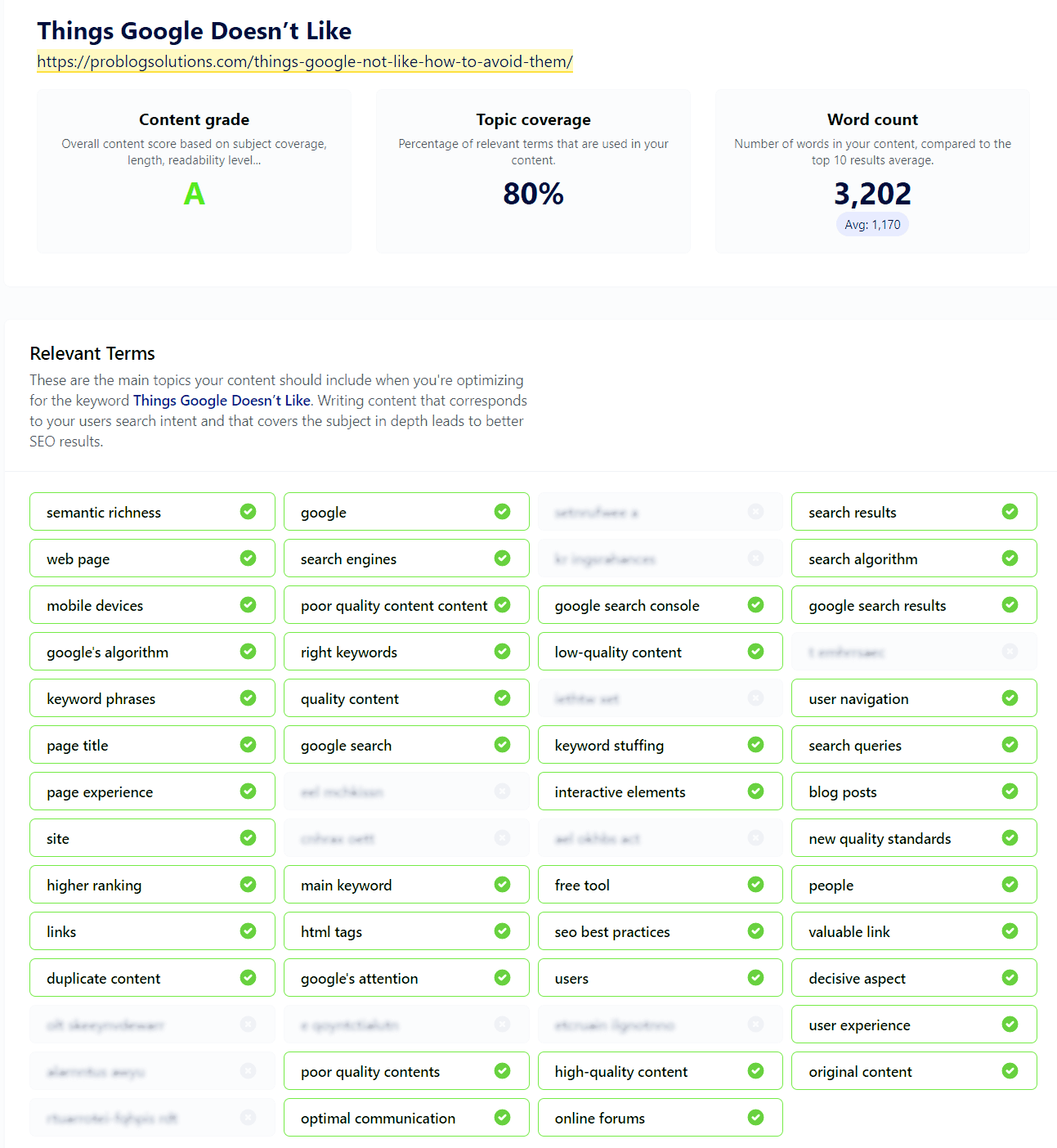
The low quality of a web page's content is a significant factor in penalizing it. If keywords were once the most crucial thing for correctly ranking websites, then a lot has changed.
Now, the content must be original, researched, and organized optimally.
Low-quality content, even accompanied by a careful choice of keywords, cannot and will not be valuable for scaling Google search engine results. There’s much more today.
You may also like to read:
- Tips to Start a Successful Food Delivery Business
- Best Ways to Earn Money Online Without Paying Anything
- 128+ Easy Businesses You Can Start With No Money
- Best Blogging Tools & Platforms to Be Successful
- How to Start a Successful Online Delivery Business
Google requires quality content in the strictest sense of the word. How can you produce interesting articles for users and, simultaneously, for the most famous search engine in the world? There is a method. It is essentially based on three main aspects:
1: The Depth of Article
Google rewards longer texts and long posts. The algorithm can now highlight published content sections to answer specific user questions.
For these reasons, more in-depth articles can offer the possibility of satisfying countless questions on the subject.
2: Semantic Richness
As mentioned, Google doesn’t just search for single keywords. Also, consider synonyms, specific terms, and related topics with direct semantic relationships with the main keyword.
Developing content circularly around the reference keywords could be decisive for optimizing search results.
3: The Interactive Elements
A lot of interactive elements make navigation better by getting users engaged. Posting videos and other elements may be particularly popular with Google, rewarding them with a higher ranking.
2. The Absence of HTML Tags
Despite the evolution of Google’s algorithm in understanding human language, its spiders obviously remain “robots that read” the language in code.
For these reasons, HTML tags remain essential for optimal communication with the largest search engine in the world.
Although this is not new today, many web pages are still poorly optimized from this point of view.
In fact, many do not include the main keyword in the page title, do not feature effective Meta Description customization, and, more often than not, do not feature advanced HTML.
How Can This Problem Be Solved?
You can use elements such as the Canonical Rel, which indicates to Google spiders not to pay too much attention to some pages of the reference portal by directing them to others, or elements such as Noindex and Nofollow, which invite not to index the less important pages of the site.
Using these tags allows you to direct Google’s attention to the most critical pages, significantly increasing the potential of the published content.
Helping Google’s crawlers is an indispensable aspect of scaling search results.
The clarity in the structure of a website is of absolute importance to allow a straightforward and quick reading (and consequently an evaluation) of the portal.
3. Below Average Page Experience
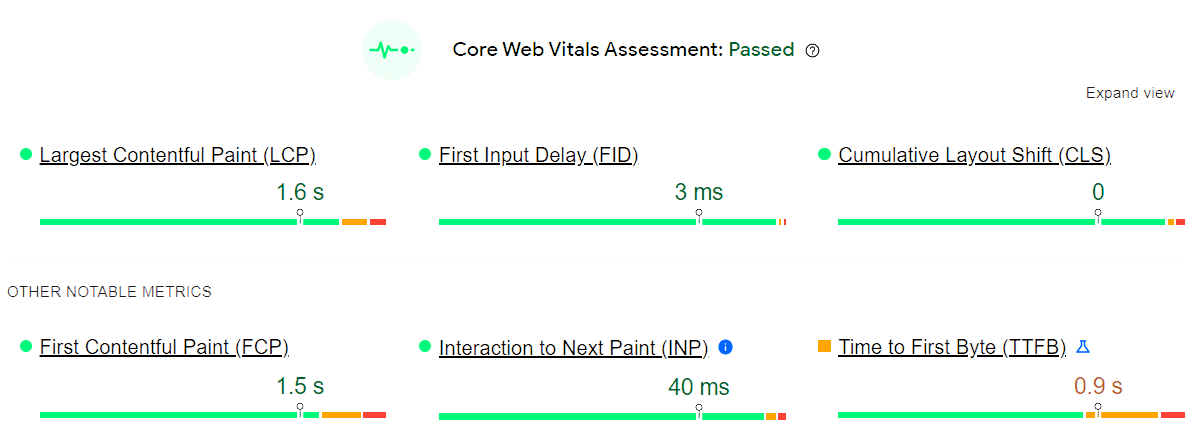
The Google update imposes new quality standards in using pages, such as a correct display of mobile devices or not excessively long loading times.
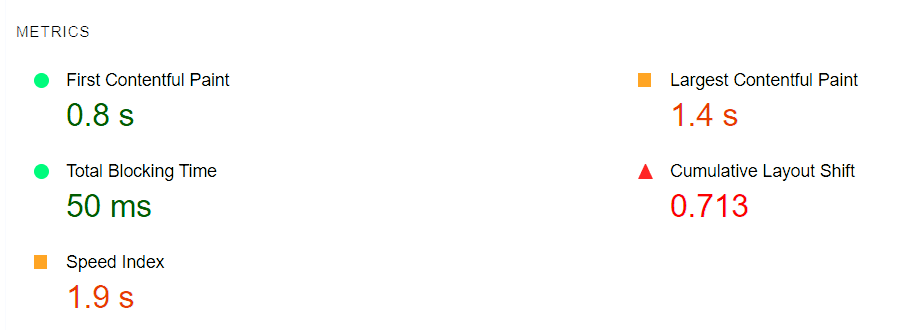
These two aspects are essential to facilitate the climb to the top, and Google, which in recent months has made them indispensable elements in the evaluation of websites, provides a free tool to evaluate both the loading speed and the correct display in real-time of the website (both desktop and mobile): PageSpeed Insight.

You should take a look. It could reveal some fascinating data.
4. Competing With Yourself
One of the most common mistakes I see is when companies compete with their pages by including repetitive or redundant content.
If you have two blog posts that include similar content and target the exact keywords, they may cancel one another out.
The easiest way to fix this mistake is to optimize similar pages for different, long-tail keywords.
You may also be able to differentiate similar content by updating something older to make it more relevant.
5. Low Domain Authority
As mentioned, Google evaluates numerous website elements, and one of these is undoubtedly the domain's authority.
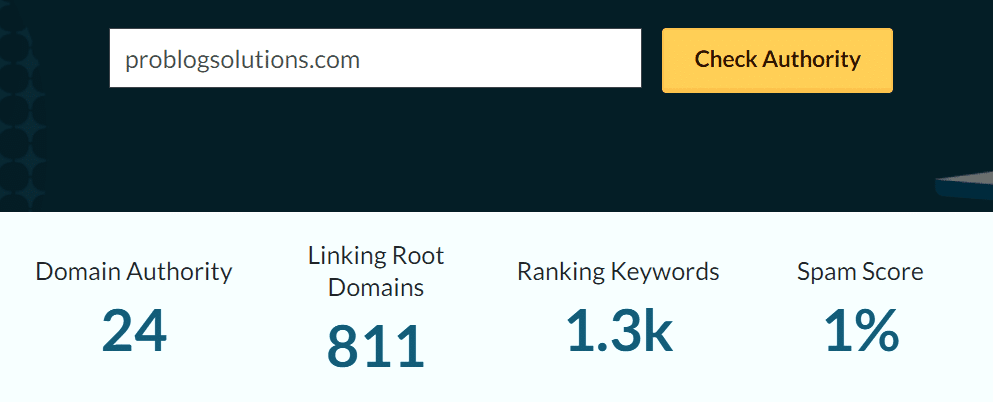
The authority indicates how reliable a site is, and this value is determined by the number and quality of the backlinks. That is, by the incoming links of your website.
Backlinks tell Google how reliable your website is, but beware, not all backlinks have the same value. Give preference to a backlink strategy created on highly authoritative domains, trying to publish quality links on your website and leaving out the quantity.
An excellent way to host a valuable link and build a network of links that could really make a difference in scaling the search results is represented by guest posts. Learn about it. It could be for you.
6. Google Hates A Site Full of Ads
If your website’s real estate is covered with trash, it is not very welcome in Google’s neighbourhood.
It’s not wrong to want to make a little money by having advertisements on your site.
However, if it’s difficult to separate the ads from the content and if the ads are intrusive enough to provide what Google considers a “bad experience” for the user, your search rankings will falter.
7. Internal Cannibalization
Everything said so far may not be enough to scale the search results if you do not pay due attention to the competition of keywords within each web page.
This process is more commonly called “keyword cannibalization.” Sadly, when it occurs, the Google crawler fails to perceive and identify the most important pages for your website, with all the following drawbacks.
How is the problem of internal cannibalization solved? Solving it only by using long-tail keywords with keyword phrases directly linked to the main and most important ones for your website is possible.
Don’t always use the exact keywords. Create an essential strategy by using long-tail keywords, introducing them, and carefully publishing them in the higher-quality content of your portal.
A further procedure to avoid the cannibalization of keywords within web pages is to eliminate content with poor performance or consider it obsolete concretely. This way, the top content will have Google's attention; it must rank high.
8. Bad User Experience
Bad user experience (UX) on a blog can be defined as any aspect of a blog that makes it difficult or frustrating for users to find the information they are looking for or to interact with the blog enjoyably or productively.
Many different factors can contribute to bad UX on a blog, including:
- Poorly designed layout or navigation.
- Irrelevant or outdated content.
- Slow loading times.
- Too many ads or pop-ups.
- Difficult-to-read fonts or colors.
- Lack of engagement opportunities.
Google does not like bad UX on blogs because it can lead to several negative consequences, including:
- Lower search engine rankings.
- Fewer page views.
- Less engagement with the blog.
- A negative impact on the blog's reputation.
Here are some tips for avoiding bad UX on your blog:
- Make sure your blog is well-designed and easy to navigate.
- Keep your content relevant and up-to-date.
- Use high-quality images and videos.
- Optimize your images for search engines.
- Keep your blog loading times fast.
- Use a responsive design so your blog looks good on all devices.
- Limit the number of ads and pop-ups.
- Use easy-to-read fonts and colours.
- Encourage user engagement through comments, social media sharing, and email subscriptions.
By following these tips, you can create a blog with a great UX that will be enjoyed by both users and search engines.
Recommended for you:
- Top 10 Best Chrome Extensions for Bloggers (FREE)
- Best Skype Alternatives to Use Today
- Blog Ideas to Promote a Product and Increase Revenue
- Emerging Technologies that Will Change the World
- Steps to Build a Successful Video Marketing Strategy
9. Keyword Stuffing
Keyword stuffing is repeating a keyword or phrase too often in a piece of content to improve its ranking in search engine results pages (SERPs). While this may have worked, search engines have become more sophisticated in detecting and penalizing keyword stuffing.
There are several reasons why keyword stuffing is not suitable for blogging. First, it can make your content unreadable and challenging to understand.
When you repeat the same keyword or phrase over and over again, it can make your writing sound unnatural and choppy. This can turn off readers and make them less likely to finish your blog post.
Second, keyword stuffing can actually hurt your search engine ranking. Search engines can now detect keyword stuffing and penalize websites that engage in this practice. This can result in lower rankings in SERPs, leading to fewer visitors to your blog.
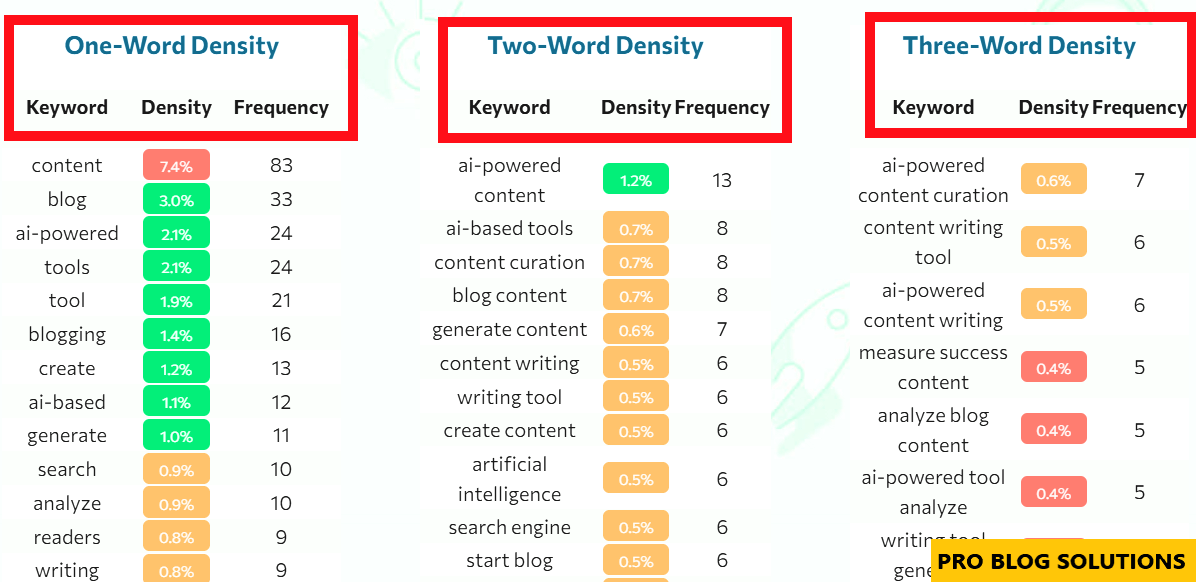
Finally, keyword stuffing is simply not necessary. There are many other, more effective ways to improve your blog's ranking in SERPs. These include creating high-quality content relevant to your target audience, building backlinks to your blog, and optimizing your website for search engines.
To improve your blog's ranking in SERPs, avoid keyword stuffing and create high-quality content to engage and inform your readers.
Here are some tips on how to avoid keyword stuffing:
Use synonyms and related terms: This shows search engines you understand the topic and helps rank for relevant searches.
Focus on quality, not quantity: Write informative and engaging content that provides value to your readers. Prioritize user intent over keyword density.
Vary your keyword placement: Include keywords in titles, headers, meta descriptions, and throughout the body text, but avoid overuse.
Target a handful of keywords: Don't try to stuff every possible keyword into your content. Choose a few relevant keywords and use them naturally throughout your text.
Proofread and edit: Read your content aloud to see if the keyword usage sounds natural.
Use longer content: In-depth content allows for a more natural distribution of keywords.
Consider keyword density as a guideline, not a rule: There's no magic keyword density that guarantees good ranking. Focus on writing well and naturally integrate your keywords.
Write naturally: Don't force keywords into your writing in a way that sounds awkward or repetitive.
By following these tips, you can avoid keyword stuffing and create high-quality content that will rank well in search engines.
10. Hidden Texts
Text to the Googlebot is like chocolate to you and me. It loves to find, gather, and add text to its database.
Some site owners and webmasters follow bad practices, hiding this text so only search bots can find it.
This is done by having white text on a white background or manipulating the web page code to hide text from a person visiting the site yet enabling a search engine crawler to “see” it quickly.
Being sneaky like this is a great way to get your site banned from Google’s search results.
11. No Backlinks or Spammy Links
Backlinks are links from other websites to your own website. They are an important ranking factor for search engines, as they help to show that your website is authoritative and trustworthy.
No backlinks can hurt your SEO rankings because they can make your website look less credible to search engines. If you have no backlinks, your website may be new or unpopular, which can lead to lower rankings.
Spam links can also hurt your SEO rankings. Spam links are links from low-quality websites or irrelevant to your website. They can also be links that have been purchased or otherwise manipulated. Spam links can make your website look spammy and can lead to penalties from search engines.
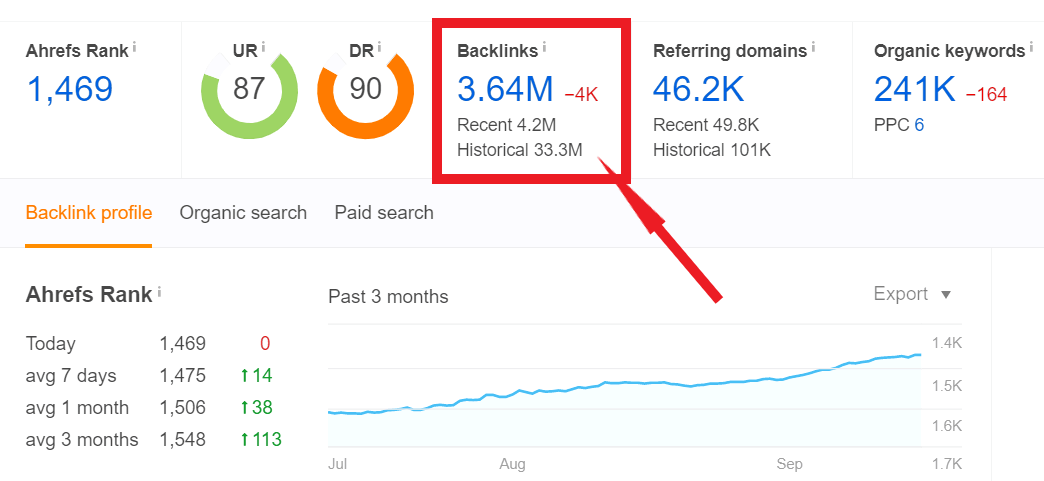
Here are some tips for building high-quality backlinks:
- Create high-quality content that people will want to link to.
- Share your content on social media and other online platforms.
- Guest blog on other websites.
- Participate in online forums and communities.
- Attend industry events and conferences.
- Reach out to other websites and ask them to link to yours.
It is important to note that building backlinks takes time and effort. There is no quick fix for improving your SEO rankings.
However, by following the tips above, you can gradually build a network of high-quality backlinks that will help to improve your website's ranking in search results.
Here are some tips for avoiding spam links:
- Avoid buying backlinks.
- Avoid participating in link-building schemes.
- Be careful about the websites that you link to.
- Use a backlink checker tool to identify spam links.
If you have spam links pointing to your website, you can disavow them using Google Search Console. Disavowing spam links can help protect your website from penalties and improve your SEO rankings.
It’s Over to You to Understanding Things Google Doesn’t Like and How to Avoid Them:
In conclusion, we believe these are the main things that Google doesn't like and that bloggers should avoid. These include:
Keyword stuffing: This is when you use too many keywords in your content, which makes it look spammy and can hurt your rankings.
Spammy links: This is when you use links to manipulate your rankings. Google will penalize you for this, so only relevant and natural links must be used.
Duplicate content: This is when you copy content from other websites without giving them credit. Google will penalize you for this, so it's important to always create original content.
Low-quality content: Low-quality content means when your content is poorly written, contains errors, or is not informative. Google will also penalize you for this, so it's important to consistently create high-quality content.
You can improve your ranking in Google search results by avoiding these things. Here are some additional tips for writing content that Google will love:
- Write for your audience: Focus on writing informative and helpful content for your target audience.
- Use keywords strategically: You can use them throughout your content, but don't overdo them.
- Structure your content well: Make sure your content is well-organized and easy to read.
- Use images and videos: Images and videos can help to break up your content and make it more visually appealing.
- Promote your content: Share your content on social media and other online platforms to get the word out.
By following these tips, you can write content that Google will love and help you attract more visitors to your blog.
What do you think of these things that Google does not like? Is your website performing well on search engines? Please share your views in the comments below.
